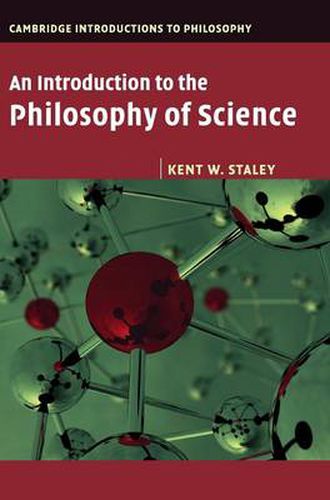Readings Newsletter
Become a Readings Member to make your shopping experience even easier.
Sign in or sign up for free!
You’re not far away from qualifying for FREE standard shipping within Australia
You’ve qualified for FREE standard shipping within Australia
The cart is loading…






This book guides readers by gradual steps through the central concepts and debates in the philosophy of science. Using concrete examples from the history of science, Kent W. Staley shows how seemingly abstract philosophical issues are relevant to important aspects of scientific practice. Structured in two parts, the book first tackles the central concepts of the philosophy of science, such as the problem of induction, falsificationism, and underdetermination, and important figures and movements, such as the logical empiricists, Thomas Kuhn, and Paul Feyerabend. The second part turns to contemporary debates in the philosophy of science, such as scientific realism, explanation, the role of values in science, the different views of scientific inference, and probability. This broad yet detailed overview will give readers a strong grounding whilst also providing opportunities for further exploration. It will be of particular interest to students of philosophy, the philosophy of science, and science.
$9.00 standard shipping within Australia
FREE standard shipping within Australia for orders over $100.00
Express & International shipping calculated at checkout
This book guides readers by gradual steps through the central concepts and debates in the philosophy of science. Using concrete examples from the history of science, Kent W. Staley shows how seemingly abstract philosophical issues are relevant to important aspects of scientific practice. Structured in two parts, the book first tackles the central concepts of the philosophy of science, such as the problem of induction, falsificationism, and underdetermination, and important figures and movements, such as the logical empiricists, Thomas Kuhn, and Paul Feyerabend. The second part turns to contemporary debates in the philosophy of science, such as scientific realism, explanation, the role of values in science, the different views of scientific inference, and probability. This broad yet detailed overview will give readers a strong grounding whilst also providing opportunities for further exploration. It will be of particular interest to students of philosophy, the philosophy of science, and science.